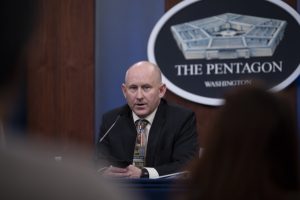The acting secretary of the Army said Monday he would like to see the service receive some of the funds that are potentially freed up as a result of the withdrawal from Afghanistan, while cautioning that its difficult to predict just how much money will actually be available for reallocation.
John Whitley, who previously served as the Army’s comptroller, noted that estimates for follow-on costs related to withdrawal operations often tend to be higher than expected.

“If the plan goes as planned, as we all hope it will, yes, there will be some freeing up of resources. Now that freeing of resources, in the Army’s position, that would be nice if that stayed with the Army. That probably won’t be the department’s position,” Whitley said during an Atlantic Council discussion. “There’s a lot of risk. We don’t know exactly how this will play out.”
Defense Secretary Lloyd Austin told reporters last Friday there will likely be opportunities to reallocate post-Afghanistan funds to high priority efforts in the department, adding there will be “more to follow” on where specifically that money could be transferred (Defense Daily, May 7).
Whitley echoed those comments and said senior Pentagon leadership has worked on an estimate of what sort of funds will be available related to potential follow-on costs associated with the Afghanistan withdrawal.
“We have a plan right now. We have an expectation, which we’ll talk about when we roll out the [FY] ‘22 budget of what we think the requirements will be in FY ‘22 for that. And if that is realized, then that will be great but we will also know there’s risk associated with that,” Whitley said.
Rep. Adam Smith (D-Wash.), chairman of the House Armed Services Committee, said last month he doesn’t expect a significant amount of short-term savings in the wake of the withdrawal, while adding if the plan is followed through there will be added budget flexibility over the next several years (Defense Daily, April 22).